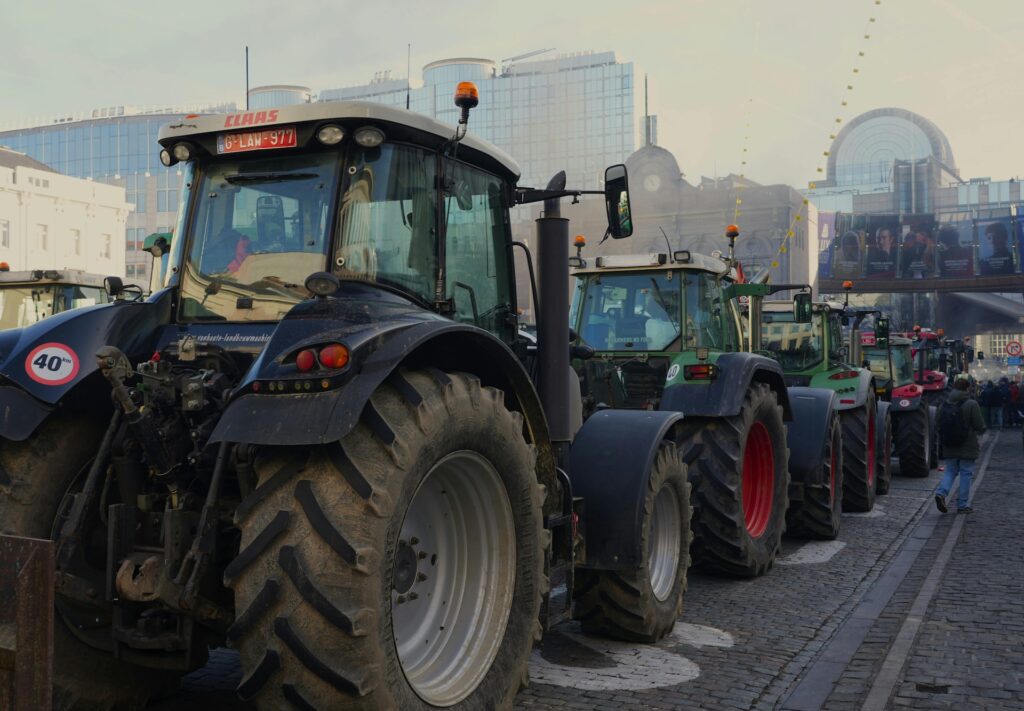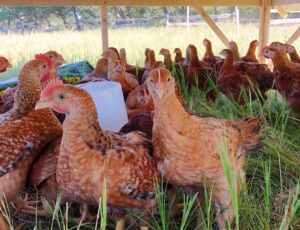In recent years, farmer protests have surged across Europe, as agricultural workers and producers voice their discontent with detrimental government policies affecting their livelihoods and the food supply. These protests, which have been unfolding in various countries across the continent, highlight the complex challenges facing European agriculture and the urgent need for policy reform. In this article, we’ll delve into the factors driving the farmer protests, dig into the legislative landscapes in different countries, and explore the impact of these protests on governmental policies.
Factors Driving Farmer Protests
- Economic Pressures: Farmers across Europe are facing mounting economic pressures, including fluctuating commodity prices, rising input costs, and increasing competition from imported goods. Many farmers struggle to make ends meet and maintain viable livelihoods in the face of these challenges.
- Regulatory Burdens: Stringent regulations and bureaucratic red tape imposed by government agencies and the European Union (EU) have added to the burden on farmers. Compliance with environmental regulations, animal welfare standards, and food safety requirements can be costly and time-consuming for farmers, particularly small-scale producers.
- Market Consolidation: The concentration of power in the hands of a few large agribusiness corporations and retailers has further marginalized small and medium-sized farmers. Unequal bargaining power and unfair trading practices in the food supply chain have eroded farmers’ incomes and undermined their ability to compete in the market.
Legislative Landscapes Across Europe
The legislative landscapes vary across European countries, with each nation grappling with its unique set of challenges and policy priorities. Here are some examples of legislation and policies that have sparked farmer protests in different countries:
- France: French farmers have protested against government policies related to agricultural trade agreements, land use regulations, and labor laws. In particular, farmers have voiced concerns about the impact of free trade agreements on domestic agriculture and the erosion of rural communities.
- Germany: In Germany, farmers have protested against proposed environmental regulations aimed at reducing agricultural pollution and mitigating climate change. Farmers argue that these regulations place undue burdens on them and fail to account for the complexities of agricultural production.
- Spain: Spanish farmers have mobilized against government policies related to water management, land tenure, and agricultural subsidies. Concerns about water scarcity, land consolidation, and unequal distribution of subsidies have fueled discontent among farmers.
- Italy: Italian farmers are protesting against government policies affecting agricultural taxation, rural development, and access to agricultural land. Farmers have called for reforms to address the decline of rural areas and support small-scale farming enterprises.
- Netherlands: In the Netherlands, farmer protests have sparked debates about nitrogen emissions, animal welfare standards, and agricultural subsidies. The Dutch government has introduced measures to reduce nitrogen pollution from agriculture and improve animal welfare conditions. However, tensions persist between farmers and policymakers over the pace and scope of regulatory changes.

Impact of Farmer Protests on Governmental Policies
The farmer protests in Europe have had varying degrees of impact on governmental policies in different countries. While some governments have responded to the protests with concessions and policy adjustments, others have been slow to address farmers’ grievances. Here are some examples of how farmer protests have influenced governmental policies:
- France: In response to widespread farmer protests, the French government has announced measures to support farmers, including increased subsidies, debt relief, and market regulation. The government has also pledged to prioritize domestic agriculture in trade negotiations and strengthen regulations to protect farmers’ interests.
- Germany: German authorities have initiated dialogue with farmers’ representatives to address their concerns and develop strategies for sustainable agriculture. The government has proposed reforms to promote agroecology, support rural development, and improve market transparency.
- Spain: The Spanish government has introduced measures to address water scarcity and promote sustainable water management practices in agriculture. However, concerns remain about the equitable distribution of water resources and the impact of water policies on farmers’ livelihoods.
- Italy: Italian policymakers have promised to review agricultural taxation policies, streamline administrative procedures, and invest in rural infrastructure to support farmers. However, progress has been slow, and farmers continue to press for more decisive action to address their concerns.
- Netherlands: In the Netherlands, farmer protests have centered around issues such as nitrogen emissions, animal welfare standards, and agricultural subsidies. The Dutch government has responded by implementing measures to reduce nitrogen pollution from agriculture, improve animal welfare conditions, and adjust agricultural subsidies to support sustainable farming practices. However, tensions between farmers and policymakers persist, highlighting the ongoing challenges of balancing environmental sustainability with agricultural productivity.
Moving Towards a Sustainable Future for European Agriculture
The farmer protests in Europe underscore the urgent need for agricultural reform to ensure the viability and resilience of European farming communities. Governments must listen to farmers’ voices, engage in constructive dialogue, and enact policies that support sustainable agriculture, promote rural development, and safeguard farmers’ livelihoods. By working together with farmers, policymakers, and other stakeholders, Europe can build a more equitable, resilient, and sustainable food system that benefits farmers, consumers, and the environment alike. The farmer protests serve as a wake-up call for European governments to prioritize the interests of farmers and chart a path towards a brighter future for European agriculture.






